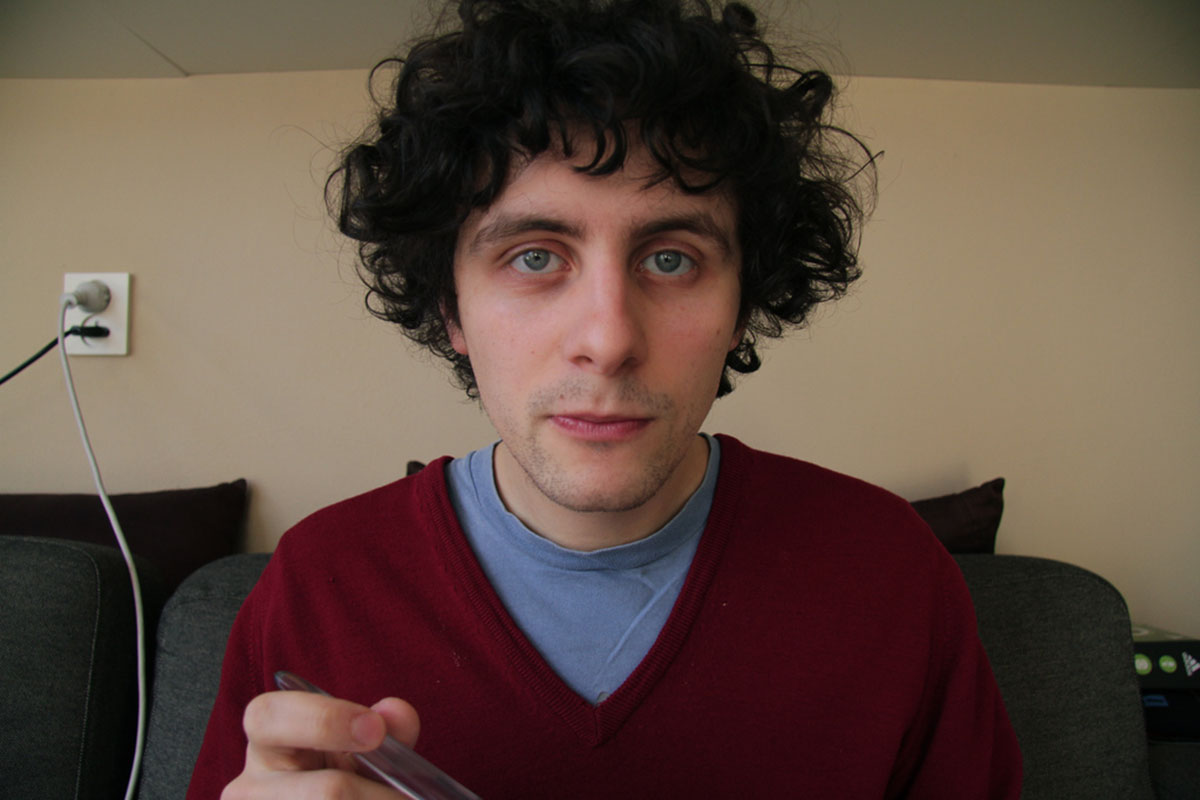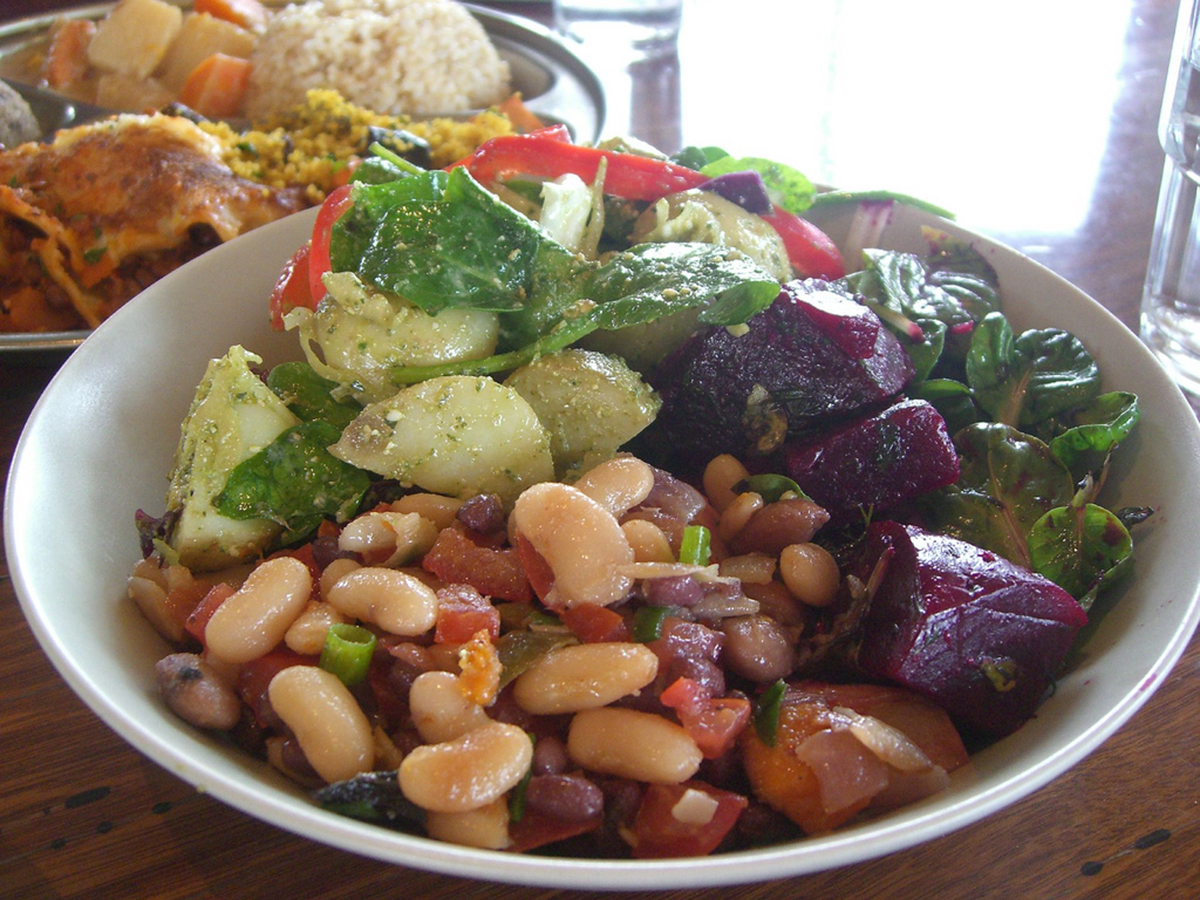Vegetarianism could have an unforeseen effect for men — it could result in lowered sperm count.
That's the word from a new study presented recently in Hawaii.
However, look a little closer and it looks like the answer to the question that forms the title of this article could be "yes...and then again, no".

That's a big difference, right? Well, yes, but to put it into perspective, normal sperm count is over 20m/ml, and the WHO calls anything over 15m/ml normal, so actually both groups were doing OK in sperm count terms.
When this study first came to light, that fact apparently wasn't available to the slew of headline writers cranking out corkers like "vegan men may be lowering their chances of conception".
What the study emphatically doesn't show is that vegetarian men have sperm counts so low that they might cause difficulty conceiving.
It' also not a study on the average vegetarian. Leaving aside jokes about how the average vegetarian is a bearded, sandal-wearing hill-walker in a bobble hat (never true, even less so now), the average vegetarian definitely isn't a Californian Seventh-Day Adventist. The Seventh Day Adventists are a sect who believe that meat is impure, so they're strict vegetarians for religious reasons, while the average vegetarian in the developed world isn't motivated by theological concerns. Could that have effects on lifestyle, or on dietary choices? The study isn't really saying.
Over four years, the researchers who ran the study looked at the sperm quality of the local Seventh-Day Adventists and compared them to the general population.
One fact that stands out is that the general population had higher sperm motility — the measure of whether sperm are swimming or not.
This concern about sperm comes as part of a wider web of worries about sperm quality and quantity as sperm counts have fallen consistently for decades across the Western world. It's not clear why this is — it could be lifestyle, but it could be some other cause. Many people are inclined to blame pesticides in food, and there is strong evidence that pesticides in food can affect sperm quality.
So if it wasn't being vegetarian that caused the drop in sperm count (and it may have been, but it may not have been), what else could it be? It could have been that the Adventists were eating more soy to make up for the lack of meat in their diets. Soy is a popular replacement for meat among vegetarians, but it has dangerous psuedoestrogenic effects in the human body, binding to the receptors for estrogen and messing with hormonal balance. So that could be the cause.
See Also: Raising Vegetarian Kids
The study's leader, Dr Eliza Orzylowska, agrees with this theory, saying, "the theory we came up with is that vegetarians are replacing meat with soy, which contains phytoestrogens and could be affecting fertility. For children who have grown up with those kinds of diets, it may have impacted on sperm quality from puberty."
If You're Ejaculating Less Often, You're Harming Your Sperm Quality
Alternatively, it could be a lifestyle factor associated with being an Adventist. Strict religionists often practice greater sexual continence than nonbelievers, and this can actually have a detrimental effect on sperm quality — if they're ejaculating less often, for whatever reason, Adventists could be harming their own sperm that way.

It's also worth pointing out that, perhaps but not necessarily because of their vegetarianism, Adventists live about ten years longer on average than the general population. This could be related to religious strictures, to a wider support network that comes from living in a community and isn't necessarily related to religion per se, or it could even conceivably be genetic. But it does mean that the Adventist population was being compared with a younger general population.
Additionally, there are some well-known plusses to being a vegetarian in terms of sperm quality. For instance, sperm are vulnerable to oxidative stress, so a diet high in antioxidants is best suited to reducing the likelihood that a given sperm will die.
If he's eating more grains and legumes, some of which are sources of phytoestrogens, that might be a problem.
The idea that a vegetarian diet is automatically healthier is one that a lot of vegetarians subscribe to, but the evidence is extremely muddy. With the collapse of the lipid hypothesis as a viable reason for heart disease and cardiovascular problems, the main appeal to a vegetarian diet is destroyed, and what remains is open to question. If eating a vegetarian diet means eating more fruit and vegetables, the loss of lipids is probably worth it, as is the reduction in protein. If that protein is made up in grain, legume and soy products, along with the caloric load, then a vegetarian diet can be an even worse one than the standard American diet in many ways.
The study is far from definitive. It looked at 443 meat eaters, a fairly low number, and compared them with 26 vegetarian and five vegans. Those numbers are so low that anything the study finds could be false in that it could just be random chance; larger studies can find enough data to overwhelm the likelihood that anything they discover is just an anomaly, but a study this small means any results could just be down to a roll of the dice.
We're hearing that vegetarians have lower sperm counts, where a truthful reportage of the same situation would read, "some Seventh Day Adventist, slightly older than average, Californian vegetarians have slightly lower sperm counts than the non-Seventh Day Adventist, average aged Californians around them who eat meat, though both populations still have high sperm counts."
See Also: Vegetarians Who Train
The bottom line is that the answer to the question posed by the title of this article is, "no, not really", or, "maybe — we don't really know".
What we do know is that soy can inhibit sperm production, so Dr Orzylowska advises, "It’s hard to tell people not to be vegetarians if they are trying to conceive, but I would caution against using soy, at least for 74 days beforehand, which is the time it takes for sperm to be replaced."
- Photo courtesy of richkidsunite via Flickr: www.flickr.com/photos/89186997@N00/5550155624
- Photo courtesy of Avlxyz via Flickr: www.flickr.com/photos/avlxyz/2695730538

